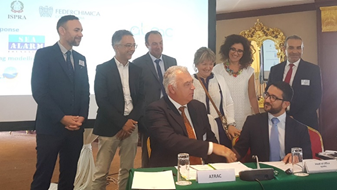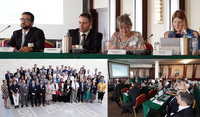Outcome of the Thirteenth Meeting of the Focal Points of the Regional Marine Pollution Emergency Response Centre for the Mediterranean Sea (REMPEC) – Jun 11, 2019
With its strategic location, the Mediterranean Sea is host to important transit lane and transhipment activities for international shipping and has seen a significant and rapid raise in cruise ship movements over the last two decades, becoming the second biggest cruising region in the world.
To face adverse impacts on human health and ecosystems of maritime activities, over 80 participants from 19 Mediterranean coastal States and European Union, as well as the International Maritime Organization (IMO) and the United Nations Environment Programme (UNEP), other governmental and non-governmental organizations, the industry and associations, meet in Malta, this week to address a wide range of technical issues and strategic decisions issues.
The Meeting notably agreed:
- to continue developing and strengthening pollution response capacity and cooperation at national, sub-regional and regional levels;
- to launch a wide consultation process to prepare the draft post-2021 Mediterranean Strategy for Prevention of and Response to Marine Pollution from Ships;
- to explore and establish synergies between the Regional Plan on Marine Litter Management in the Mediterranean and the IMO Action Plan to address marine plastic litter from ships;
- in principle to further examine the possibility of designating the Mediterranean Sea area as an Emission Control Area for Sulphur Oxides under MARPOL Annex VI; and
- on the need to define a sustainable and collaborative approach to implement effectively the Offshore Protocol and its Action Plan.
All the working documents as well as the report of the Meeting are available on the following link.
The Meeting congratulated the Centre on the occasion of the 25th Anniversary of the establishment of the Mediterranean Assistance Unit (MAU) and welcomed the signing of the agreement with its sixth member, namely the Adriatic Training and Research Centre for Accidental Marine Pollution Preparedness and Response (ATRAC).



